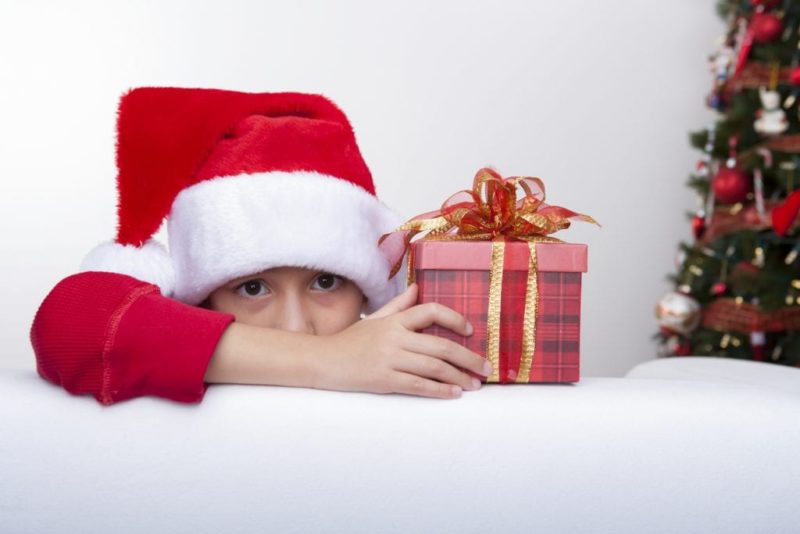Does your child sometimes find it hard to cope during the holidays? In this blog post we share our tips to help make the holidays easier and less stressful for you and your child.
Holidays are a great time for many of us, but for some children the lack of structure and change in routine can make school holidays a real challenge. Then, when we add in heaps of Christmas and end of year parties, it can be a recipe for children getting overwhelmed.
With this in mind, here are my top tips and activities to help you and your child enjoy the break:
- Create a visual timetable
During the term, children have a regular routine, so creating some structure during the holidays can help their self-regulation. Let your child know what is happening in the day ahead by visually outlining the day’s activities. This helps them mentally prepare for the day and can help minimise the likelihood that they’ll be upset by unexpected activities.
ACTIVITY: Create your visual timetable with your child, with different cards for regular activities (e.g. breakfast, going to the beach, playdates, bath time, screen time etc.) that you can stick on and move.
- Include spontaneous time in your schedule
It’s good for children to start learning to adapt to change and spontaneity — just like we constantly have to as adults. This means you don’t have to have every minute of your day mapped out or confirmed. By including ‘Surprise Cards’ in your visual timetable, you can prepare your child for something that will be happening, even if it’s uncertain.
ACTIVITY: Create multiple ‘Surprise Cards’ for your visual timetable, which can be represented by question marks. You can use special decorations (e.g. glitter, stickers, scented pens etc.) to help celebrate, rather than fear, the unknown.
- Give warnings and use visual timers
Even with a timetable, children can go from happy to meltdown when they have to stop an activity they’re enjoying. A warning can help smooth these transitions — particularly for ones they don’t like (e.g. going to bed). You can use tools like egg timers, an alarm on your phone alarm or a small hourglass to do this.
ACTIVITY: Get your child involved in setting the timer so they feel a sense of ownership in and agreement with the impending change.
- Ultimate fidget toy
Have an ‘ultimate fidget toy’ with you for times when your child is transitioning from one activity to the next or has to sit through a car journey. This keeps their hands busy when, for example, you take away the iPad, and are transitioning to bath time.
TIP: The best fidget toys are non-screen-based and have lots of elements that your child can use for immersive sensory stimulation.
- Create a holiday story
If you’re going away, preparing your child for what will happen is key to helping them manage. Write down the sequence of events that will happen in a story so you can read it to your child or they can read it themselves.- For example: “Next Friday Mum, Dad, etc. and I are going to the Sunshine Coast for a holiday. We will drive there on Friday morning in the car. We will be staying in a hotel. When we arrive, we will go to our hotel, take our bags in from the car and see where we will be sleeping. We will stay here for five nights. When we’re on holiday we will go to the beach, play in the pool, go for walks, go shopping, go out for lunch and lots of other fun stuff… etc.”
ACTIVITY: Get your child to draw, write or perform different elements of your upcoming holiday. Alternatively, they can tell the ‘holiday story’ to a grandparent, friend or relative.
- Dealing with noisy, busy environments
With sparklers, carols, Christmas lights, fireworks, and lots of new people, end of year events can be an overwhelming sensory overload for kids.If you know you are going somewhere where your child could struggle, prepare them by:- Having some quiet time before the event, so they are dealing with the unfamiliar when they have enough energy to manage it
- Having a backup plan to ‘escape’ the situation, even if it’s just for a short quiet break, so your child doesn’t feel ‘trapped’ within the situation
- Bring their ultimate fidget toy to help them self-soothe
- Prepare your child for the sensory input that will happen and teach them the language to use so they can let you know they are struggling. For example;
- “Sometimes new places can be overwhelming and we can feel stressed or tired. This is ok. If I feel like this I can tell mum or dad that I feel upset / or that things are going too fast. I can use my fidget toy to help me stay calm or ask to have time in a quiet place.”
By using these strategies, your child can feel more prepared for the changes and events in the holidays. What other things help your child cope with during the break?
Also, stay tuned for our next post in the new year where we’ll discuss different holiday activity ideas!


